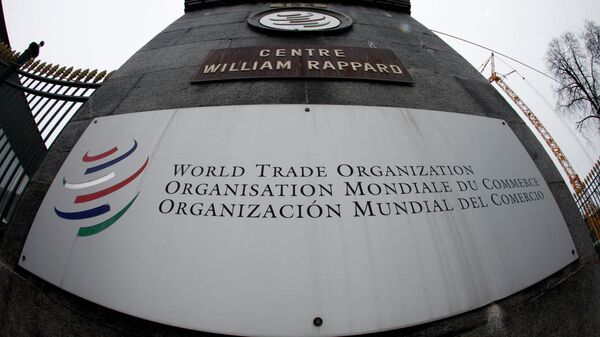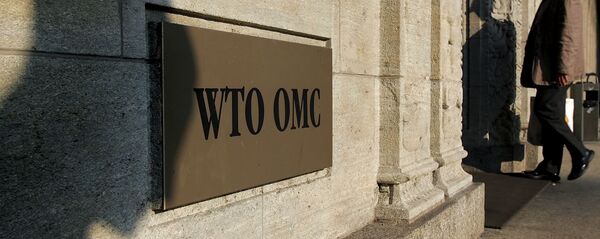The World Trade Organisation has ruled that the US violated the trade rules of the organisation by introducing high tariffs against Chinese goods as a part of its trade war against the Asian country. The organisation demanded that the US bring its tariffs into conformity with the country's obligations as a member of the WTO.
The WTO's ruling clarified that not only do Washington's actions go against the regulations set forth by the global trade body, but that the US had also failed to properly justify the economic measures imposed against Beijing, as required by the WTO charter. The global trade body's ruling further stressed that the US had failed to utilise the Dispute Settlement mechanism to resolve the issues that had arisen in the trade relations with China, as it was supposed to.
"Recalling Article 3.7 of the DSU that highlights that the aim of the dispute settlement system is to achieve a positive solution to a dispute, the Panel expresses its ongoing encouragement to the parties to pursue further efforts to achieve a mutually satisfactory solution [to their conflict]", the ruling says.
In the wake of the WTO ruling's publication, Beijing has expressed hope that the US will respect its recommendations and return to compliance with the global body's regulations.
US-China Trade Tensions
In the past, US President Donald Trump has repeatedly accused the WTO of treating the United States "unfairly" in its dispute resolving mechanisms. Washington theoretically has the power to challenge the WTO's ruling on tariffs against China, which enables Beijing to legally respond in the form of imposing tariffs against American goods. But in practice, the US has no chance of seeing the appeal process be completed because of its own past actions that have left the WTO's appeals court defunct due to a lack of Washington-approved judges.
The trade war between the two countries started back in 2018 at the initiative of Washington, which accused Beijing of abusing the existing trade agreements to profiteer at the US’ expense and introduced hefty tariffs on Chinese steel and aluminium. The list of affected goods has only expanded since, including some $200 billion worth of Chinese imports by 2020.
Beijing has strongly denied Washington's allegations and has consistently introduced tariffs on the imports of American goods of an equivalent value in response. The sides signed the so-called Phase One agreement in 2019, which was supposed to become a first step towards normalising the two countries' trade relations, but ties between the two deteriorated once again after President Trump accused China of being responsible for starting the global coronavirus pandemic - another allegation denied by Beijing.




